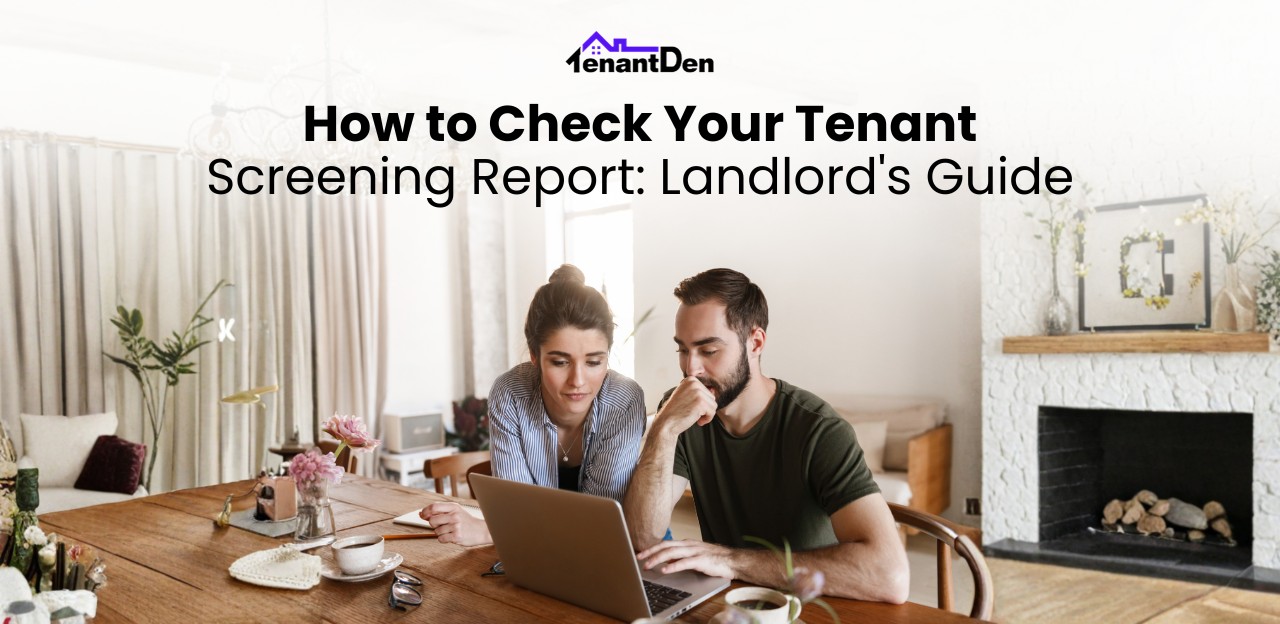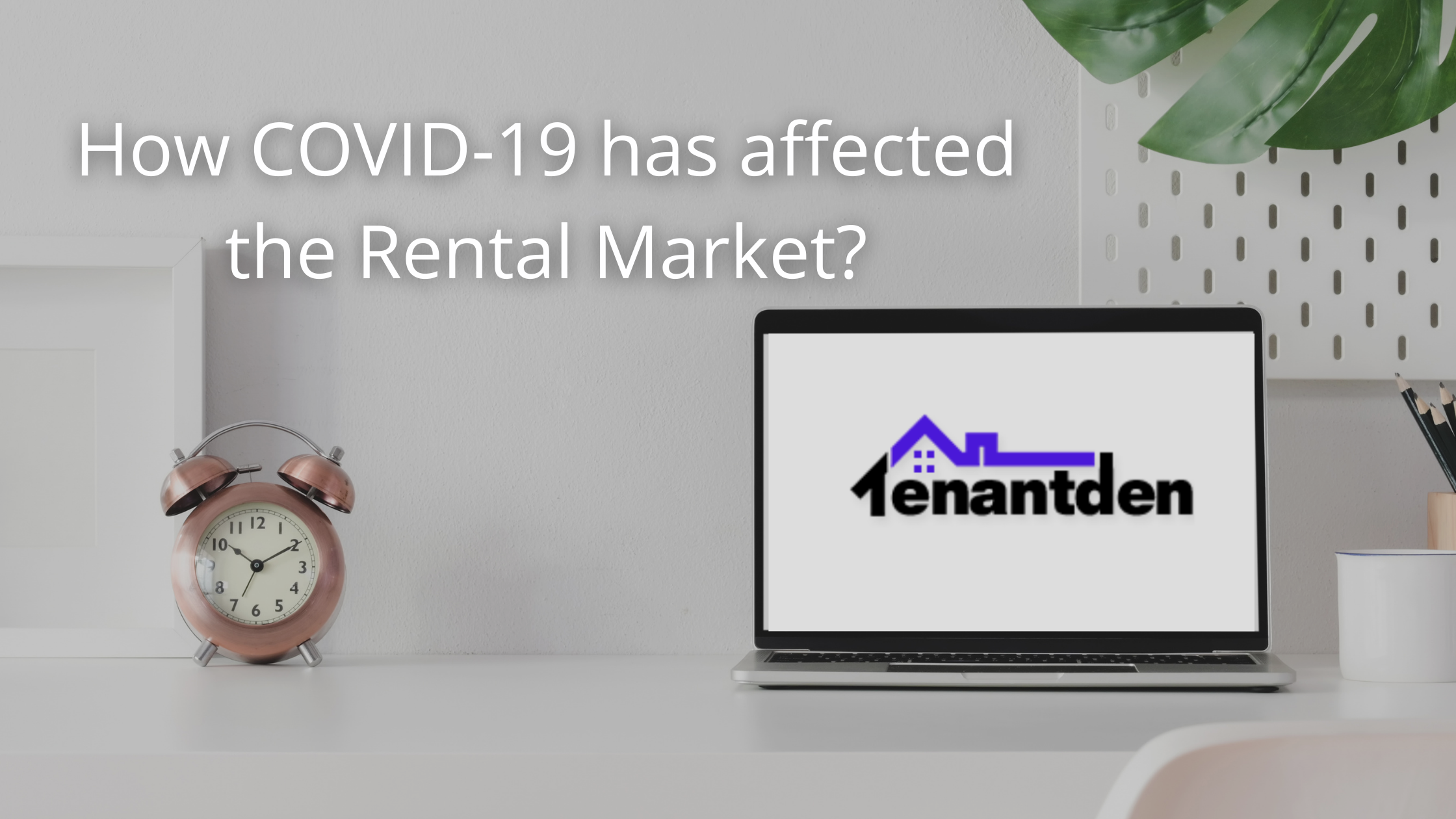
- 10/31/2025
Ever felt uneasy right after approving a tenant, thinking what if you have made a big mistake? It might happen if you have not checked the tenant screening report properly.
Most landlords don't know the importance of a tenant screening report. That’s why they would just take a glance at the report. This leads to missing out on important data that eventually results in adverse outcomes like unpaid rent or property damage.
This is why we have brought here a detailed landlord’s guide on how to check the tenant screening report to help you rent your property to reliable hands.
Understanding Tenant Screening Report
A tenant screening report consists of detailed information about a tenant’s background, including their financial information, credit score, criminal background, eviction history, and employment status.
Landlords use this report to check if the potential applicant is trustworthy or not. Checking the tenant screening report before renting helps landlords make the right choice for their rental property.
However, it becomes useful only when you check the report properly. Otherwise, it can cause costly outcomes.
How to Check Your Tenant Screening Report?
Often, landlords neglect tenant screening reports. But this report acts as a valuable asset to make the right decision about a renter. Each section of the report is your goldmine, but only when you know how to check it correctly. Here’s a step-by-step guide to tell you how to check your tenant screening report.
Step 1: Verify Personal Information
First, start with the basics. Ensure that the tenant's personal information matches what's on their rental application.
This includes:
- Full legal name
- Date of birth
- Social Security number (if applicable)
- Current and previous addresses
If you find any mismatch in personal information, then it might signal identity issues or reporting errors. Always double-check this section before proceeding.
Step 2: Check the Credit Report Thoroughly
The credit report highlights the financial information of the tenant, telling whether they will be able to pay rent on time or not. That's why it is considered to be the most crucial part of a tenant screening report.
While reviewing the credit report, look for:
- Credit Score: Generally, a credit score of more than 650 is considered to be good. However, you should not ignore the key details. Sometimes lower credit scores can be due to medical illness, too. That’s why you should consider the reason behind the low score before taking any action.
- Payment History: Always analyze the payment patterns in the credit report. On-time rent payments indicate reliability.
- Outstanding Debts: Check for credit card debts and personal loans. A high level of debt can easily affect rent payments.
- Public Records: Don’t forget to look for bankruptcies or civil judgments in the credit report of the tenant, as they are the major red flags indicating the need for inquiry.
A credit report is considered to be the heart of a tenant screening report. So, never just look for a score. Have a detailed analysis of payment history, debts, and public records to ensure yourself having on-time rent payments.
Step 3: Check Criminal Background
Checking criminal backgrounds is crucial to maintaining the safety of your property and your neighbors.
But it should be handled legally in compliance with Fair Housing laws because many states restrict taking criminal records into consideration while renting to avoid discrimination.
You should pay attention to:
- Offense Type: Not all offenses should be treated the same way. Violent or property-related crimes are significant issues and need immediate action.
- Recency: If a tenant applicant has had a conviction more than 10 years ago but is now well-employed and has a clean record, then they should be considered to be trusted.
- Relevance: Always consider offenses related to tenant suitability, like theft or repeated disturbances.
Renting the property to a reliable tenant is essential for a landlord’s peace of mind. That’s why you should analyze a criminal background report thoroughly.
Step 4: Review Eviction History
Eviction records actually tell about the renter’s past behavior. And from this, you can predict the future too. This is why, while reviewing this section, ask:
- How many evictions have occurred for the tenant?
- What were the reasons behind the eviction? (non-payment, lease violation, etc.)
- Have any of the evictions occurred recently?
A single old eviction is entirely negligible. But if you find multiple recent evictions, then it calls for serious concern. So, check for the eviction history properly to prevent any issues in the future.
Step 5: Confirm Employment and Income Status
A tenant's ability to pay rent depends on their income stability and employment. Verify that their employment and income details match the rental needs.
Check for:
- Consistent employment history
- Monthly income is at least three times the rent amount.
- Ask for strong proof through tax forms or employer verification.
If you're unsure how to verify the accuracy of your tenant screening report's income information, always cross-check the screening data with supporting documents.
Step 6: Get Reviews from Previous Landlords
You have the tenant's financial income report and eviction history. But numbers only tell one part of the story.
It is the feedback that provides the whole picture, especially when it comes from a tenant's previous landlords.
Reach out to previous landlords and ask:
- Did the tenant pay rent on time?
- Were there any complaints or damages?
- Would they like to rent to the same tenant again?
You might think that calling landlords is time-consuming. But a two-minute call can reveal more about the tenant's reliability than any report numbers.
Step 7: Look for Inconsistencies and Red Flags
Often, landlords just skim through the tenant screening report. And this is how some inconsistencies are missed and property falls into the wrong hands.
Cross-check all sections of the report for inconsistencies. Minor mismatches can signal carelessness, but multiple ones can signal dishonesty.
Major inconsistencies include:
- Frequent address changes
- Unverifiable employment
- Conflicting personal details
- Missing landlord references
If you find anything unreliable, step back and take time to verify. It's always better to delay approval than face eviction hassles later.
Final Say
Learning how to check your tenant screening report isn't just about paperwork. But it's about protecting your property, time, and peace of mind. By following this simple step-by-step guide, you will be able to rent your property to a trustworthy tenant.
If you are looking for a trusted platform for tenant screening reports, look no further than TenantDen. TenantDen provides a complete picture of your applicants with a detailed tenant screening report powered by SmartMove, a TransUnion product.
So, sign up now on TenantDen to review your tenant screening report with precision and reliability.
Popular Posts


